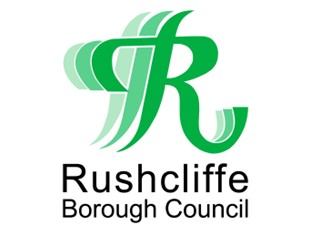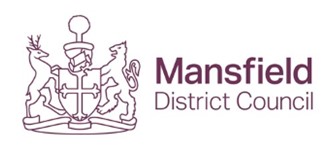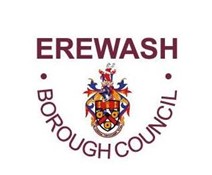Business and council leaders in the East Midlands are to press local MPs and Government ministers for clarity on when the ‘paused’ Midland Main Line (MML) electrification scheme will resume – arguing that it should take priority over other rail upgrade schemes currently on hold.
The then Transport Secretary, Justine Greening MP, announced the electrification of the MML from Bedford to Nottingham, Sheffield, and between Kettering and Corby, in July 2012. Network Rail said electrification would mean faster, more reliable journeys and reduced running costs.
But in June, Transport Secretary Patrick McLoughlin, who is also MP for Derbyshire Dales, announced there would be a “pause” in the work, pending a spending review of it (and the wider Network Rail business plan for 2014-19) by new Network Rail Chairman Sir Peter Hendy. His report is due out this autumn.
Peter Richardson, Chair of the D2N2 Local Enterprise Partnership
Mr McLoughlin has since insisted that he is “…determined that the work to electrify the Midland Main Line will be done, and done well.”
A delegation of leaders from businesses and local authorities in the East Midlands will ask regional MPs for their support at a meeting at the House of Commons on 16 September, ahead of a final meeting with Mr McLoughlin and Sir Peter in November.
The group is seeking assurances from Government about the future of the project. Among the arguments put forward in a joint letter to the Transport Secretary, and to be discussed with him and Sir Peter in November, are that:
- The investment and effort already put into preparing the way for the MML electrification, through rail works such as bridge rebuilding, makes it a more certain proposition than other proposed electrification schemes, such as the TransPennine route between Leeds and Manchester, also currently ‘paused’.
- Even a small delay on the MML electrification project could cause significant cost increases – the opposite of what the Government wants – with the rise in cost of London’s Crossrail project cited as an example.
- Uncertainty over the project’s future creates difficulties for the service franchise-holder when procuring replacement rolling stock for its current fleet of diesel high speed trains, which must be replaced by 2019 at the latest. A delayed decision could limit available procurement choices, with the possibility of the franchise-holder having to go with a diesel-only rolling stock, which would be a backward step for the East Midlands’ low carbon economy aspirations and for reducing rail costs (its estimated electrification could save £60m a year on rolling stock running costs).
- Electrification is a key element in business and political leaders’ approach to building a ‘Midlands Engine for Growth’ and regional support for HS2, in terms of increasing connectivity. It is argued that councils, Local Enterprise Partnerships and business have made real strides in building a consensus on these two fronts, particularly in joint support of an HS2 Hub Station at Toton, and want to be sure this will be taken into consideration as part of Sir Peter Hendy’s review and the Secretary of State’s decision.
Chris Hobson, Director of Policy at the East Midlands Chamber, said: “Businesses in the East Midlands were disappointed and frustrated with the decision to pause the planned electrification of the Midland Main Line and welcome the opportunity to meet with the Transport Secretary and Chairman of Network Rail to discuss why this project should take priority over other schemes in Network Rail’s future plans.
“For the past two decades, there has been huge investment in other routes, yet the Midland Main Line has been starved of investment, in spite of the fact that the route serves one of the fastest-growing areas in England, which has generated much of the economic growth needed to drive the UK’s economy away from recession and created more jobs than any other region.
“The electrification of the Midlands Main Line is critical to the delivery of a modern, cost effective and reliable transport system serving the economy of the East Midlands and should proceed without delay.”
Peter Richardson, Chairman of the D2N2 Local Enterprise Partnership (Pictured), said: “The Midland Mainline electrification project needs to be kept on track. It’s a key part of the infrastructure we will be relying on to drive forward our plans for the ‘Midlands Engine’ and our support for HS2 in the region.
“Business, political leaders and the LEPs here are united in not wanting to see the excellent preparatory work done so far go to waste. We will be making that very clear in our forthcoming meetings.”
Cllr Jon Collins, Chair of the East Midlands HS2 Strategic Board and Vice Chair of East Midlands Councils said: “We were able to generate cross-party support for electrification in the run-up to the Government’s original decision to support the scheme back in 2012. We now need to mobilise the same level of support to make sure that it is delivered as soon as possible.
“Electrification is vital to the long term competitiveness of local economies across the East Midlands and to the delivery of the ‘Midlands Engine’ initiative. All that further delay will do is increase costs and undermine business confidence in the Government’s ability to deliver key infrastructure projects.”
For more information about this media release, please contact:
Jon Smart Communications and New Media Manager East Midlands Chamber 0333 320 0333 ext.2004 07764 431028 | Sean Kirby Communications Officer D2N2 Local Enterprise Partnership 0115 9578749 |





























